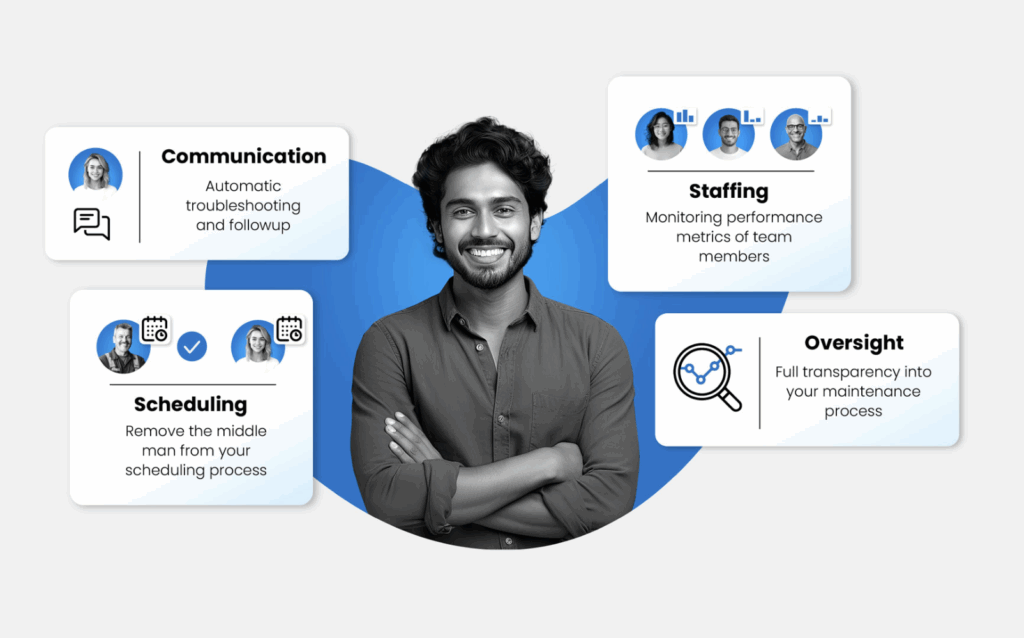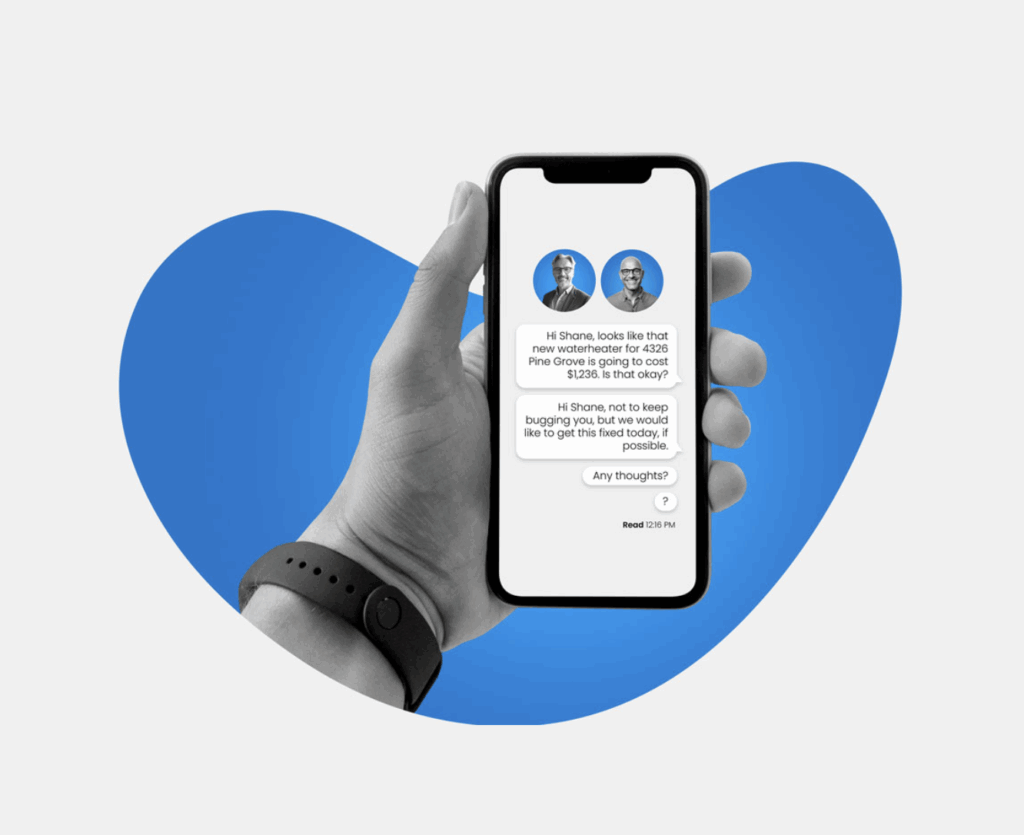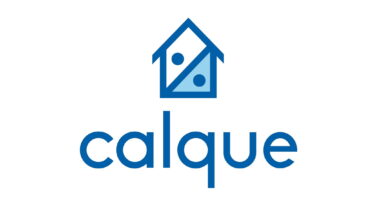“I think any broker who goes into this business should really concentrate on an area they know and love, because that is the key to success,” reflects Lois Kirschenbaum, a promin...
Moneyball Meets Property Maintenance: Property Meld Transforms Property Management


“What if I could show you five or six actions that statistically reduce your likelihood of lease churn by 10 percentage points?” asks Ray Hespen, CEO and Co-Founder of Property Meld.
This isn’t just a hypothetical question. With data from over 750,000 rental units and approximately $1 billion in annual repairs, Hespen’s company has uncovered powerful correlations between maintenance practices and resident retention—potentially saving property owners thousands of dollars per unit annually.
From Mining Engineer to Maintenance Innovator
Hespen’s journey to revolutionizing property management began far from real estate. A mining engineer by training, he graduated during the 2008-2009 economic crisis and quickly learned to do more with less.
“As a plant manager in Sparrows Point, Maryland, I had to cut costs by 40% while maintaining production with the same team size,” Hespen explains. “That experience in systematic problem-solving and automation became the foundation for Property Meld.”
The company’s origin story began with a simple phone call from his co-founder, David Kingman, who asked about Hespen’s experiences with rental maintenance when he was renting.
“Requesting maintenance was painful enough that usually, if a repair didn’t cost that much, I would just do it myself, because it wasn’t worth the headache of going through management,” Hespen recalls. Kingman shared his frustration with the endless phone tag and communication breakdowns that characterized maintenance requests, seeing there could be a market opportunity.
That conversation – and a great deal of strategic effort – birthed what would become Property Meld. And today, the company serves approximately 2 million residents as the nation’s largest maintenance software platform for property management.
The Data Revolution in Property Management


What sets Property Meld apart isn’t just streamlining maintenance workflows—it’s the company’s ability to capture and analyze maintenance data at scale, transforming reactive property management into a predictive science.
“If I told an investor that the number of service requests in the first year can change the renewal rate by 12%, that’s significant,” Hespen says. “Everybody thinks a 70% renewal rate is common. I’m talking about the difference between that and 82% just by managing maintenance effectively.”
Property Meld’s data analysis has revealed several key insights:
- The type of repairs that happen in the first year can impact renewal rates by 11 percentage points
- The volume of communication during service issues can affect renewal likelihood by 8 percentage points
- Managing speed of repair appropriately can adjust lease churn rates by 10 percentage points
These findings are game-changing for an industry where a single turnover can cost $5,000 or more in lost rent, turnover costs, and leasing fees. “One turnover can wipe out NOI for an investor,” Hespen notes. “Statistically, you can alter that anywhere from $1,700 to $2,400 a year by just improving that renewal rate.”
From Firefighting to Optimization
Hespen sees property management evolving through distinct phases:
- Firefighting: The chaos phase, where managers react to emergencies and rely on “exceptional people that have a ridiculous pain tolerance and can get yelled at all day.”
- Control: Developing systems to identify problems before they escalate into angry phone calls.
- Forecasting: Predicting workloads, resource allocation, and vendor performance.
- Optimization: Using AI and data to make optimal decisions about resource allocation, vendor selection, and preventive maintenance.
“When we entered the market, it was firefighting 100%,” Hespen says. “Now the industry on the whole is anywhere between the firefighting and forecasting stage.”
The optimization phase represents the future—and potentially a market-defining advantage for early adopters. “When you reach that phase of maturation, the free market determines which companies thrive, attract more clients, and deliver more NOI to investors, while those not iterating quickly enough may struggle.”
The Vision: A Home That Almost Fixes Itself
Property Meld’s long-term vision extends beyond improving maintenance coordination. “We had this vision of a home that almost fixes itself,” Hespen explains.
He describes a future where data and IoT sensors can predict component failures before they happen: “With sufficient data, the system can inform the property manager that an air conditioner is due for replacement or a component needs to be replaced.”
In this scenario, the air conditioner never fails because the system has already dispatched the right technician, ordered the necessary parts, and scheduled the repair—all using AI. “The smart lock opens the door when you arrive, and the only person involved is the technician performing the repair,” Hespen envisions.
Such a proactive approach would dramatically reduces costs. “Everyone knows that fixing an air conditioner in June is about twice as expensive as fixing it in April, and buying an air conditioner in June is twice as expensive as buying it in February,” Hespen points out. So if timing could be optimized, the savings could be immense.
Recent Innovations: AI Intake and Decision-Making


Property Meld recently acquired Mezo, a leader in AI intake and triage for maintenance requests. This technology, called “Max,” functions like “the most friendly technician that doesn’t get mad at you when you don’t have the right wrench,” Hespen jokes.
The system helps residents troubleshoot issues, gathers clean data for technicians, and can predict component failures with 99.94% accuracy.
Looking ahead, Property Meld is rolling out an “optimal decision on assignment” tool that will recommend the ideal vendor or technician based on factors like cost history and resident lease churn risk.
“Imagine being a maintenance coordinator and seeing that a request represents a lease churn risk. The system recommends a highly-rated vendor who’s available in one and a half days and has previously serviced that property… That might be the perfect decision.”
The Future of Property Management


As property management evolves from a reactive industry to a data-driven, predictive one, Hespen sees a transformation in the role of maintenance professionals.
“That blue collar job is becoming more white collar—using data, information, and predictability to anticipate issues, resembling more of an Excel file than bringing a firehose as the primary tool,” he says.
For property owners and managers facing rising costs and pressure on rental rates, this evolution is timely. “In the next four to five years, this will likely be one of the biggest transformations in property management in the past 20 to 30 years.”
The ultimate goal? Creating an experience so seamless that residents never become frustrated enough to leave. And, in a market where every percentage point of resident retention translates directly to the bottom line, that improvement could be worth many millions to property owners nationwide.
Similar Articles
Explore similar articles from Our Team of Experts.


In the competitive world of commercial real estate, specialization can be the key to success. For Elyse Welch, Partner at Carolina Retail Experts, that specialization manifested in an exclus...


Following in his grandfather’s footsteps, Alex Mehran Jr. brings a distinctly personal approach to leading Mehran Realty Group, a comprehensive property management and consulting firm ...


In New York City’s challenging housing landscape, one organization stands out with a clear vision: transforming lives through affordable homeownership. Since July 2024, Sabrina Lippman...


Fintech company Calque is transforming how Americans handle one of their most challenging financial transactions: buying a new home while selling their current one. Founded in 2020, the comp...




